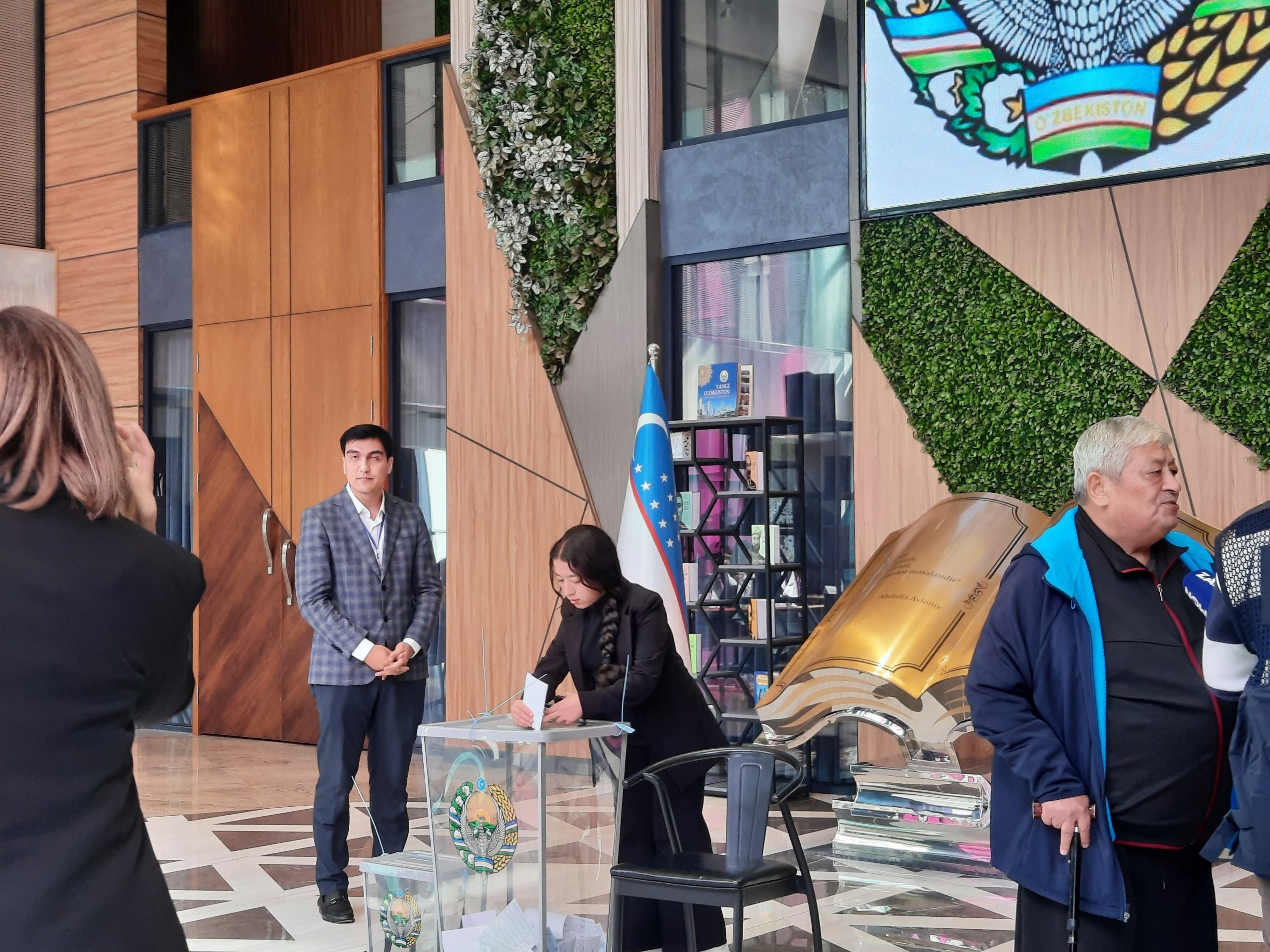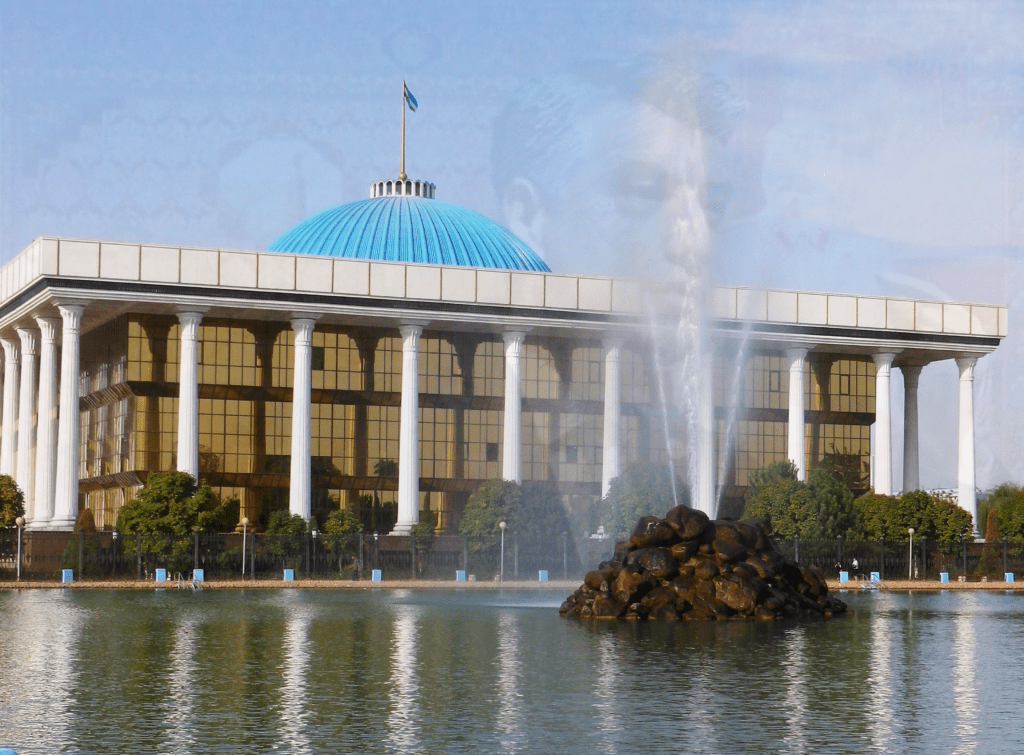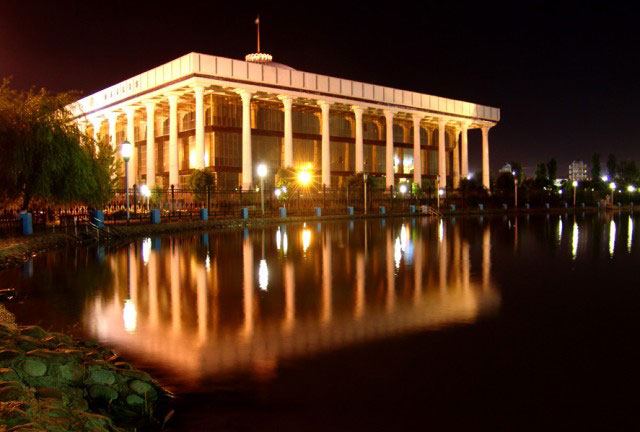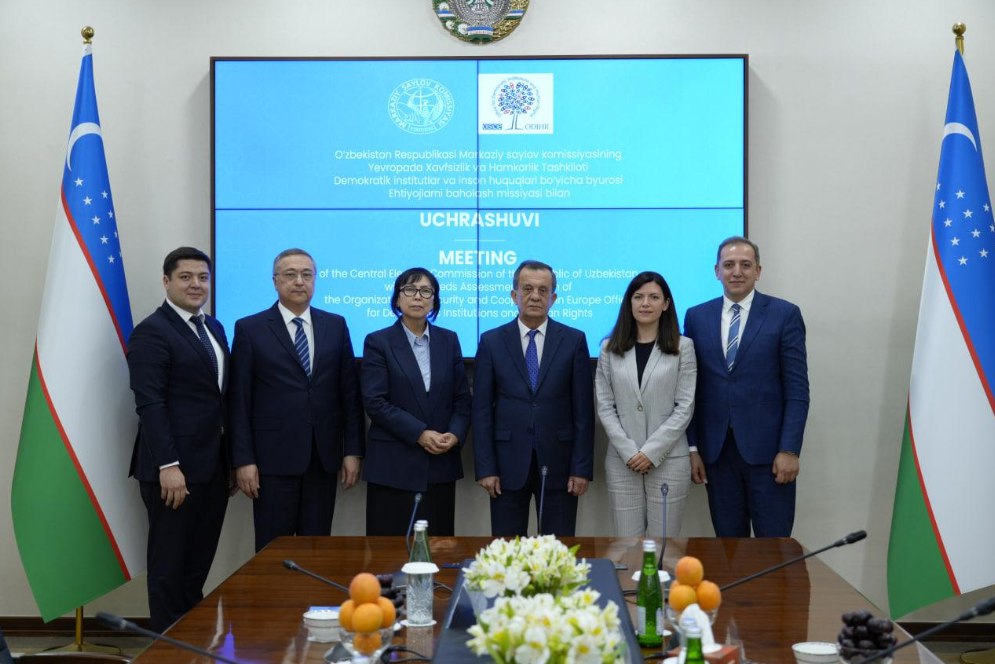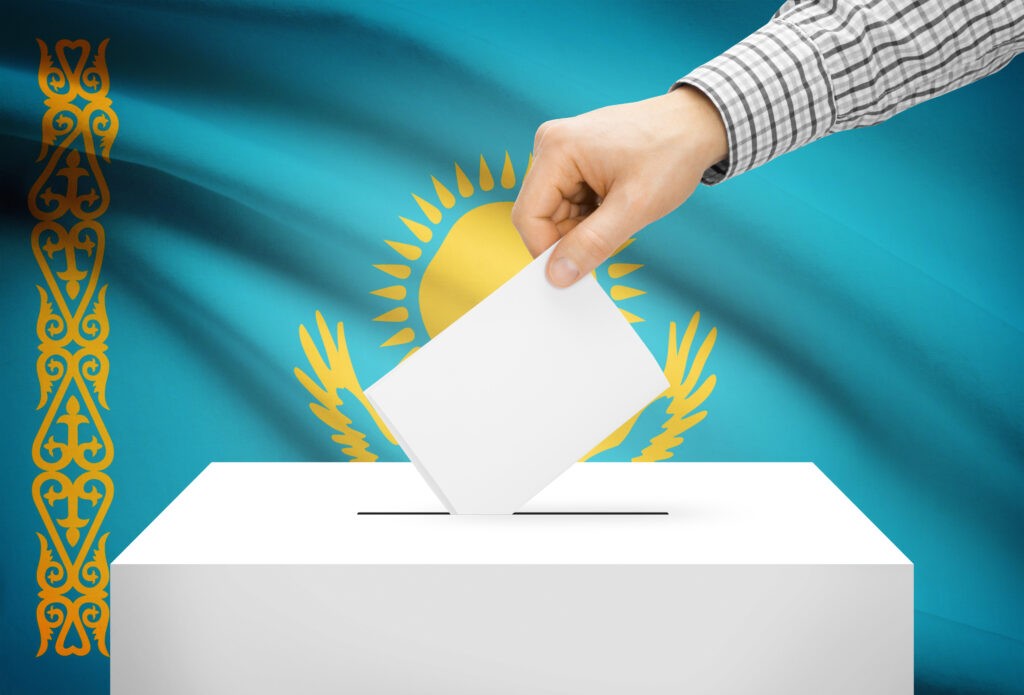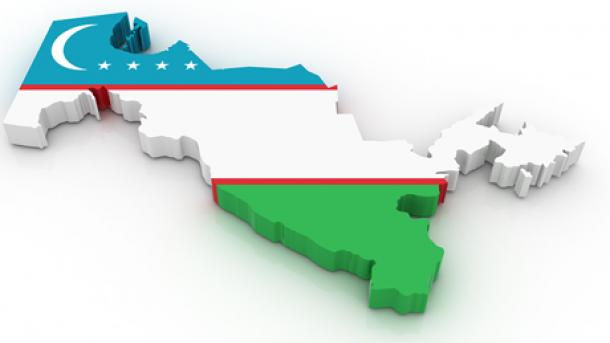On October 27, Uzbekistan held elections for deputies of the Legislative Chamber of the Oliy Majlis (Lower House of Parliament) and local councils. This marks the first time these elections were conducted using a mixed (majority-proportional) system and featured electronic voting.
For over a month, parties actively promoted their election programs to the public, with televised debates and messages on public transport urging citizens to participate in the elections and shape the country’s future. As required by law, all campaign activities were halted one day before the election.
The electoral platforms of the five parties registered in Uzbekistan saw The Liberal Democratic Party of Uzbekistan (UzLiDeP) emphasize poverty reduction and promoting internal labor migration over the next five years. The party also campaigned on expanding public-private partnerships in water management, ecology, and energy to increase the private sector’s share in the economy to 85%. Additionally, UzLiDeP pledged to improve education, healthcare, and social services, focusing on providing clean drinking water and sewage systems in schools. The party pledged to double the annual budget for healthcare to $6 billion, and advocated to enhance healthcare and social support for citizens over the age of 70.
The People’s Democratic Party (PDP) focused on accessibility and social support, including assistive technologies at public transportation points for people with disabilities. They proposed adopting a “Social Housing” law, requiring luxury housing developers to allocate funds for social housing. This would benefit vulnerable groups, such as the homeless, people with disabilities, and those coming through the orphanage system. The party’s environmental initiatives included the Water Code and creating “Health Parks” for seniors near apartment complexes.
The Milli Tiklanish (National Revival) Party’s platform spanned various topics, including youth development, cultural enrichment, family support, economic growth, and tourism. One key pledge emphasized Uzbekistan’s international relations, focusing on friendly ties with neighboring countries, cooperation, and maintaining peace – this despite party leader, Alisher Qodirov’s anti-Russian rhetoric, including recent comments that “it would be better for [Russia] to deal with their own affairs [which are] full of problems than to deal with our internal issues.” Qodirov has been actively responding to international discussions about Uzbekistan, reinforcing the party’s commitment to advancing national interests and strengthening Uzbekistan’s presence on the world stage.
The Adolat (Justice) Social Democratic Party ran on a platform of advocating for media freedom, proposing reforms to safeguard journalists’ rights and prevent interference. Adolat pledged to introduce a “Presumption of Property Rights” to protect ownership and put forward affordable energy and price stability initiatives.
The Ecology Party’s motto, “We are responsible for the future!” set out to drive home its focus on environmental and social issues. The party promoted government, business, and civil society efforts to address environmental challenges, whilst seeking to improve environmental legislation and education, and transitioning Uzbekistan toward a green economy.
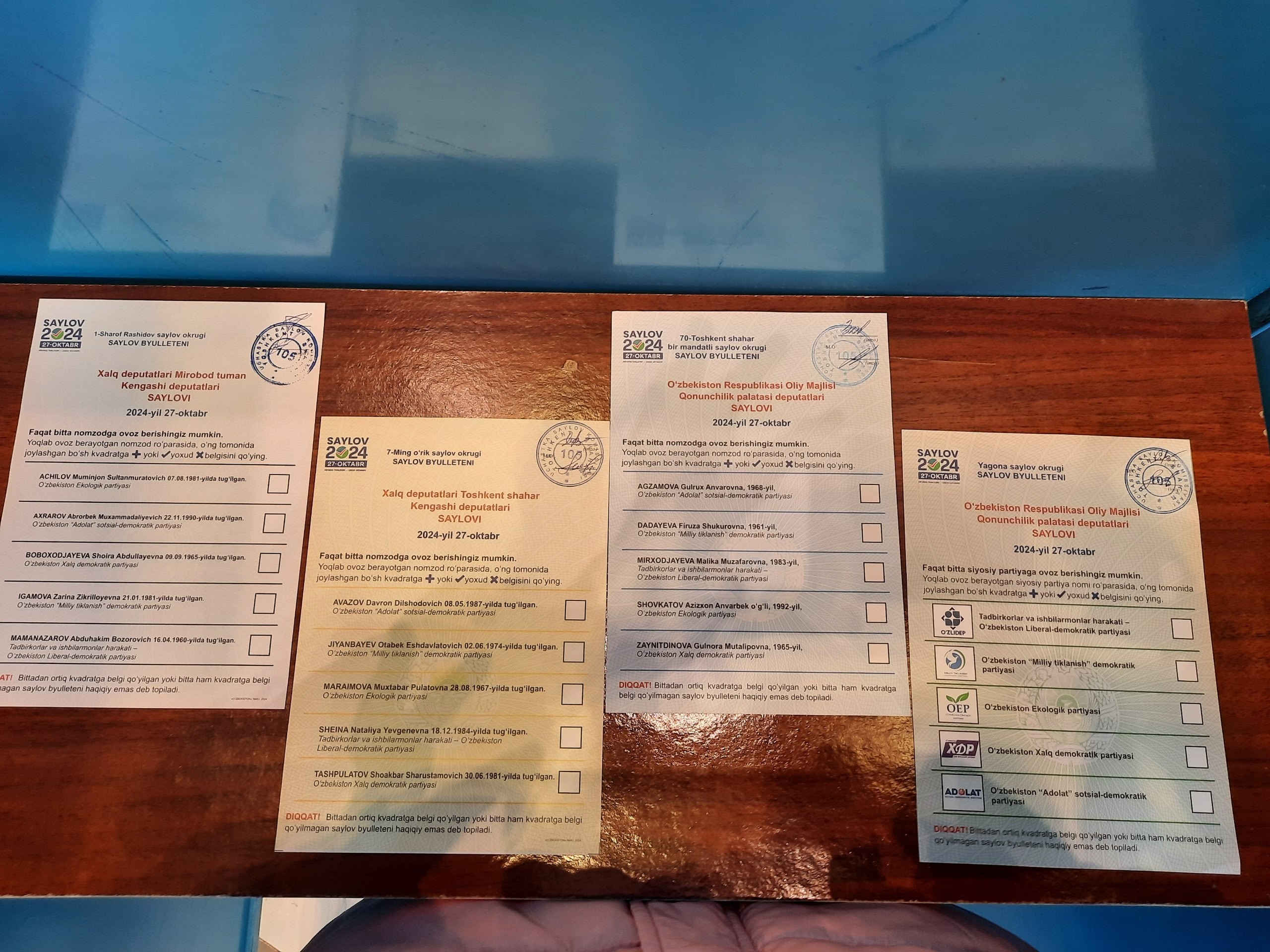
@TCA
According to Uzbek legislation, the election would be deemed valid once 33% of voters participated, and by 1pm local time 47.62% of voters had cast their ballots.
President Shavkat Mirziyoyev and his family voted in the 59th polling station on Tashkent’s Mirzo Ulugbek district. More than 850 international observers participated in the elections as part of fully-fledged missions from the CIS, SCO, the Organization of Turkic States, and the OSCE Bureau for Democratic Institutions and Human Rights. Chairman of the Central Election Commission, Zayniddin Nizamkhodjaev, announced that 74.72% of registered voters had voted in the elections.
According to preliminary results, President Mirziyoyev’s UzLiDeP has won 64 seats in the Legislative Chamber of the Oliy Majlis. National Revival gained 29 seats, Adolat 21, the PDP 20, and the Ecology Party 16 seats. Some Western outlets, such as Barron’s, characterized the elections as “tightly controlled” with “no real opposition,” whilst according to The Diplomat, all of the entities allowed to register “have always been perceived as mere extensions of the state.”
However, since the death of long-term despot, Islam Karimov, Uzbekistan’s “state apparatus [have] become more open,” as noted by an election observer in 2019. Amidst reforms aimed at tackling endemic corruption, in recent years Uzbekistan has gained ground on Transparency International’s global corruption perception index, and recently partnered with the World Bank on “training, projects, and research to combat corruption.”
In it’s preliminary conclusion, the OSCE stated that Uzbekistan’s parliamentary elections “took place amid ongoing reforms, including
significant amendments to the Constitution, but the political environment remained constrained, not providing voters with a genuine choice. While the electoral framework has gradually evolved, and elections were technically well-prepared, significant challenges in meeting international standards for democratic elections persist in such areas as political party registration, the right to stand, campaign
finance transparency, citizen observation, and the publication of polling station results.”
